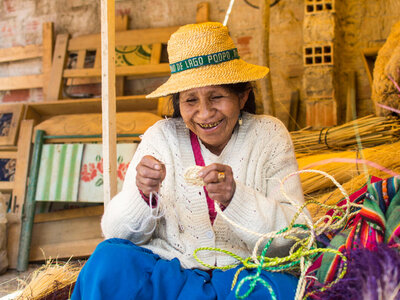Plurinational State of Bolivia
- 53.7%
- of children under 5 suffer from anaemia
- 4 out of 10
- women live in poverty
- 11 million
- population
Bolivia (Plurinational State of) is among the top ten most biodiverse countries in the world. However, it has been severely affected by extreme weather conditions such as floods and droughts, whose impact on agriculture and access to food heighten the effects of poverty and food insecurity for rural and Indigenous people.
Despite significant economic and social progress, including a drastic reduction in extreme poverty, and improvements in nutrition and life expectancy, the country continues to face serious challenges in achieving the Sustainable Development Goals.
With the right to food enshrined in the Constitution, the Government is committed to ending extreme poverty by 2025. The World Food Programme (WFP) works with national and local institutions, and other partners, to support this goal and to reduce the double burden of malnutrition (undernutrition and obesity/overweight).
WFP promotes the production and consumption of diverse ancestral and nutritious foods that are essential to the cultural identity of the 36 Indigenous peoples and communities in the country. The role of WFP is evolving from providing direct assistance to supporting the government's efforts in addressing food insecurity and malnutrition, through technical assistance, advocacy and communication.
What the World Food Programme is doing in the Plurinational State of Bolivia
-
Resilience building
-
Bolivia is the Latin American country most affected by extreme weather. WFP provides cash assistance to those affected by climate-related disasters, so they can access food. We also involve people in activities that strengthen their resilience to future crises, including small animal husbandry, fish production and handicrafts.
-
Nutrition
-
Support for Indigenous farmers
-
Capacity strengthening
Bolivia (Plurinational State of) news releases
Go to pagePartners and Donors
Find out more about the state of food security in Bolivia (Plurinational State of)
Visit the food security analysis pageOperations in Bolivia (Plurinational State of)
Contacts
Office
Calle 20 de Calacoto N° 7720, planta baja, Casilla 933, La Paz, Bolivia
La Paz
Bolivia







